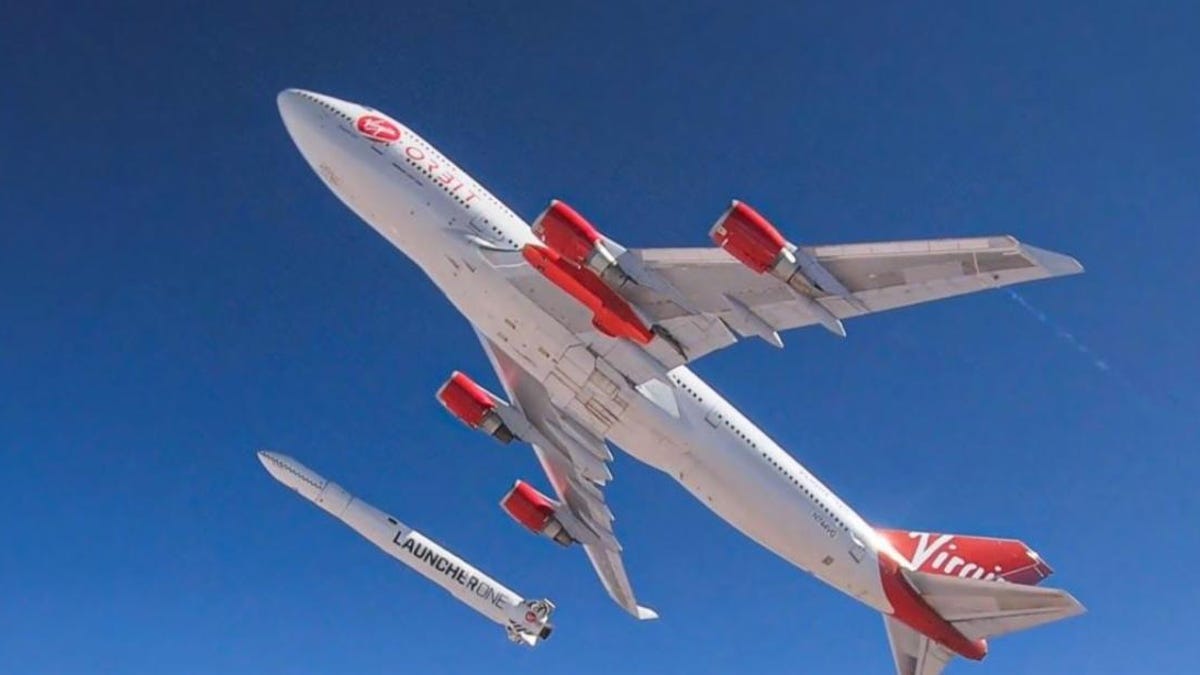Virgin Orbit will livestream its first fully commercial launch
Richard Branson's satellite-launching rocket company is officially out of beta.

A modified jet carries Virgin Orbit's LauncherOne rocket to launch altitude.
While Virgin Galactic continues to work toward sending tourists to space, sister company Virgin Orbit is moving into commercial operations and inviting the world to watch.
Richard Branson's midair satellite-launching outfit says it's concluded its launch demo program and is now preparing for its next mission to launch six small satellites for three customers in June.
The mission is nicknamed Tubular Bells, Part One after the smash 1973 Mike Oldfield album, which was the first record released by Branson's Virgin Records.
"Like Tubular Bells, our customers are doing something a little out of the ordinary for our space industry," the company said in a statement.
Virgin Orbit employs a different launch method than most competitors. A LauncherOne rocket carrying each mission's payload is lifted to a high altitude attached to the belly of a modified Boeing 747. Once at launch altitude, the jet drops the rocket, which then ignites to begin the rest of the trip to orbit, powered by a pair of engines that fire up in two stages.
After a failed test flight in 2020, LauncherOne made it to space in a successful follow-up demonstration mission in January.
The Tubular Bells mission will take off from Mojave Air and Space Port in California, with LauncherOne detaching at a drop point over the Pacific Ocean. On board will be three cubesats for the US Department of Defense, one for the Royal Netherlands Air Force and two more for SatRevolution, a Polish company building a real-time Earth observation constellation.
Virgin Orbit hasn't set a specific date for launch but says it's aiming for sometime in June. The company has also pledged to livestream the mission, a first for a Virgin Orbit launch.
Follow CNET's 2021 Space Calendar to stay up to date with all the latest space news this year. You can even add it to your own Google Calendar.

